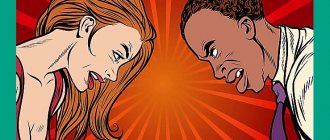American scientists have calculated that today's youth work much more than their parents who grew up in the 80s, but at the same time they make fewer serious and large purchases. What's the catch here? The fact is that in our society, workaholics and people who “burn” at work are the heroes of our time, who are praised for their perseverance and desire to live a better life, but at the same time they are silent about the downside of devoting their lives to work - about chronic stress, which leads to the fact that you stop loving not only your weekdays, but also your weekends. How to understand that your burn out, or emotional burnout syndrome at work, is already close?
You begin to involuntarily “mess up” constantly
Chronic fatigue syndrome at work manifests itself in small things: you begin to forget important dates or are chronically late, and tasks that you previously did easily and “automatically” now bring you to a stressful state. For our brain, dealing with stress is a completely normal and simple operation, but if stress becomes chronic, then it is not possible to cope with it so easily, and you begin to concentrate only on the negative aspects of work, which turn an ordinary day into torture.
Causes
- You are haunted by the notorious emotional burnout . You spend a lot of mental energy to force yourself to start working. This happens for many reasons. You may have lost interest in what you are doing or are suffering from the weight of responsibility on your shoulders. If so, read the article about why you don't want to work.
- You don't follow a routine and don't sleep enough. Don't underestimate sleep: it works real miracles for the body.
IMPORTANT! A healthy adult needs at least 7 hours of sleep a day, and ideally 8. Also, your daily routine means that you fall asleep and wake up at approximately the same time. Then the brain develops a habit, and you feel comfortable and do not suffer from insomnia and lack of sleep.
- You lack vitamins. In truth, almost all modern people suffer from vitamin deficiency, but an acute deficiency of any element can lead to exhaustion.
After work you don't feel like doing anything at all
The only desire that comes to you is to quickly get home, sit comfortably on the sofa with a tablet and not have anyone bother you. Unfortunately, an unloved task can turn into a nightmare not only the morning and day, but also the evening and night: when you are exhausted at work, you don’t want to make plans for your free time, and even a vacation doesn’t seem such an attractive idea to you, because it still needs to be organized. In other words, when absolutely nothing tempts you, this is the surest alarm signal.
Three stages of burnout:
#1. Overstrain, fatigue that does not disappear after sleep.
A person may forget words, terms and working facts at the right time. Make mistakes when typing letters on the keyboard or replace some letters with others when writing by hand.
#2. Exhaustion, “inanimateness,” lethargy, nervousness.
A person’s productivity and interest in work decrease, he doesn’t want to communicate with anyone (even outside the office), he is apathetic and dissatisfied. I often have headaches and high blood pressure. The number of respiratory tract diseases is growing, and irritability is manifesting itself.
#3. Psychosomatic illnesses and depression, aversion to everything and complete apathy appear.
The employee does not see prospects in his professional activity, does not enjoy his work, and loses faith in himself.
You involuntarily fall asleep at work or feel unwell
In science, this is called unconscious sleep, and you probably remember this state from your school days: you are trying to concentrate on something, but your body seems to “turn off” itself, and you fall asleep for a few seconds or minutes. This is a sign of accumulating fatigue, which in the following stages turns from such attacks of a minute's sleep into a general disorder of the whole organism. In other words, you feel as if you are sick, you have headaches, weakness and lack of appetite.
Moral fatigue from people, clients
Moral fatigue is no less significant than mental or physical fatigue. You can't underestimate her. If you are very tired at work from contacts with clients, partners or co-workers, take note of ways to overcome this psychological discomfort.
- Be sure to give yourself some privacy . Take time just for yourself: loneliness can sometimes heal a person. Do not contact friends after work, and explain to your household that you need rest.
- Turn off notifications on social networks after finishing your work day. Unfortunately, working with people often brings with it an irregular schedule: clients write, consult, ask for advice. But everything has a limit: you also need proper rest.
- More often get out into nature. We underestimate the impact of greenery and birdsong on our psyche.
ADVICE! Walk in parks, observe the world around you, breathe fresh air. Spend the weekend in a country house.
You hate talking about work with others
“Everything is fine with me at work” - and that’s where all the conversations end. Thinking about work in your free time seems to bring you back to your workplace, and you deliberately avoid any conversations on business topics. Or you just complain non-stop when it comes to work and can't come up with a single reason for pride or joy that comes from it.
What to do if your feet hurt?
At the end of an exhausting working day, your legs simply become leaden, which causes a lot of suffering. Let's find out how to relieve tired legs after work. There are several proven methods.
- Massage your feet with stroking movements, from bottom to top, so as not to disturb the blood flow. When you feel that the blood has begun to circulate more intensely, sit on the bed and place your legs on the wall so that they are higher than you. After some time you will feel relief.
- A contrast shower is also an excellent solution to the problem. As soon as you literally direct the shower stream onto your feet, it becomes easier. Increase the water pressure and massage your tired feet.
- Buy foot ointment at the pharmacy.
IMPORTANT! Heparin ointment is usually recommended - cheap and cheerful: it dilates blood vessels and prevents the formation of blood clots.
How to feel better if all of the above is about you?
Start by taking a break: take a few days off or go on vacation, but always in a dynamic that contradicts the work rhythm. In other words, if you have a sedentary job, then you need active rest, but if you are stressed and on the run all day long, then you need “vegetable” rest. After a break, be sure to adjust your daily routine and diet, and include physical activity in your plans for at least 40 minutes a day. Try reconsidering your priorities. How much time do you spend on work, and how much time is left for your own affairs? Is this workload worth the money you receive, and are there prospects in this work that inspire you to continue? If not, then maybe you should try something new and make work fun again.
How Netpeak employees deal with burnout
#1. Discuss the problem with those who have already solved it
Most likely, your manager or one of your colleagues has already experienced burnout. Talk to them about it.
#2. Playing sports
If your hobby is not related to sports, look for the optimal sports hobby in addition to your hobby. At the very least, walk a lot - to work, on personal errands, just walk. If your work involves a lot of communication with people, you need to walk alone.
#3. Take regular breaks
Take vacation at least twice a year and at least a week. Spend your weekends outside the home, ideally going out into nature or traveling. Use gadgets as little as possible while relaxing.
#4. Get enough sleep
The recommendation for most adults is to sleep at least 7 hours a day.
#5. Set short-term goals and celebrate achievements
And not only work ones, but also personal ones. For example, run 5 km, do 50 push-ups, learn French, do a puzzle, grow a lemon tree.
We are demanding of ourselves, and inside each of us there is a critic who carefully evaluates all our achievements. It is important that we are able to praise ourselves in the same way, and not just scold. To do this, digitize and specify your goals.
#6. Reduce the number of decisions made
Making a decision is a serious strain on the brain. This is why many people want to go into routine or just stick to their phone, social networks, or TV. Try to avoid making decisions in everyday matters.
For example, my colleague threw away all his clothes and bought 10 pairs of identical pants, T-shirts, shirts, shoes, so that he wouldn’t have to worry about what to wear every day.
#7. Do not recycle
Set deadlines and schedule tasks on your calendar. Leave some time for unforeseen tasks, as well as time to relax, talk with colleagues, and drink tea.
All business content in a convenient format. Interviews, cases, life hacks of the corporation. world - in our telegram channel. Join us!
#8. Protect yourself from information noise
Don’t read the news and social networks, don’t delve into politics and don’t follow trends. If this is not possible, sometimes give yourself a weekly information detox.
#9. Communicate with the team
Chat with colleagues on non-work topics so that work is associated less with problems and more with a good team and loved ones.
#10. Analyze your growth in the company
Look at your work from the point of view of “me today” and “me when I first arrived.” By comparing yourself to yourself on your first day of work, you will find changes for the better that you can be proud of: salary, position, working conditions.
Bonus: useful apps, talks and books:
#1. Unroll.me - reduces information noise in mail.
#2. Calendly simplifies the process of scheduling appointments.
#3. LifeWheel - helps keep life in the right rhythm.
#4. Speech by the founder of Netpeak Group Artem Borodatyuk “How to burn with work, but not burn out.”
#5. The book “Jedi Techniques. How to raise your monkey, empty your inbox and save your mental fuel.”
#6. Book “Goal. A process of continuous improvement."
#7. Book "45 tattoos of a manager."
#8. The book “Wake Up! Or how to stop living on autopilot.”
Reduce detail
If you can’t tear yourself away and make tea, reduce the level of detail: close your eyes for 30 seconds, get up and sit down immediately, turn off the music.
When an internal storm begins, reducing the amount of incoming information and demands on myself helps me. This is a repeat of the story that sometimes you need to reschedule all but one thing. This happens, it's normal.
It’s also useful to focus less on plans. I chose three projects for the week, and that’s what I’m doing. I wanted and was going to do something else - I’ll choose these classes at the next one. It is also important to lower your expectations and give yourself the opportunity to improve in time. So that mistakes are not perceived as something critical and irreparable.
I wrote the course in two stages: a draft for the test group and a clean draft for the main group. In a draft, I can write crudely, use simple phrases and not go into explanations - no problems, it’s not scary to make a mistake. When I send it and it passes the first check, I will have enough strength and energy to bring everything to a readable state: it has already been checked for nonsense and errors. Beauty.
The main thing is to start moving and enjoy it. The further you go, the more confident you become.
Improve blood circulation with simple and quick exercises
avogel.co.uk
Not all exercises will wake you up, and long-term training will completely tire you out. But doing simple movements throughout the day will definitely help you stay relatively alert when you're feeling really tired.
For example, do 3 sets of push-ups with 30 seconds rest in between. The number of repetitions is up to you: do as many as you can. This shouldn't take you more than 5 minutes, you won't even break a sweat - the activity will just invigorate you a little.
Drink coffee in reasonable quantities (if at all necessary)
time.com
Caffeine is what most people use to get an energy boost when they are very tired. But its excessive consumption can lead to headaches. If you drink coffee frequently or regularly consume caffeine, you won't learn much. You're probably already brewing your third morning mug, hoping it will help at least a little.
If you are not a coffee drinker, start your day with a reasonable amount of this product (about 65-100 mg, about one small cup). This will help you feel more alert throughout the day. This is because your active brain is constantly producing adenosine as a byproduct of its activity. When adenosine levels are high enough, the brain realizes that it’s time to get some rest.
Essentially, caffeine pretends to be adenosine and pushes it aside, binding to its receptors and preventing sleep from occurring. This effect is especially noticeable if you rarely drink coffee, and almost disappears if your body is already expecting it.
It is important to remember that it is better not to drink coffee in the afternoon, otherwise you will go to bed late again and re-read this article the next day.
Why Sensitive Achievers Find It So Hard to Take a Break
Poorly constructed borders
Sensitive achievers have extraordinary empathy, which can make it difficult for them to say “no” and set boundaries. As a result, you may become overly involved in any request that is made to you, without having the strength to refuse or speak up when the situation requires it. In addition, poorly constructed boundaries make it difficult to strictly separate work and personal time. You likely find it difficult to switch off from work at the end of the day, which allows work to take up more of your time and your mind, even during your free hours.
Striving to prove your worth
Many Sensitive Achievers are susceptible to impostor syndrome. Instability and uncertainty can lead to an exaggerated desire to compensate for perceived shortcomings. That is, you can start working more to be satisfied with yourself. You might try to prove your worth by achieving more and more, which would be the opposite of giving yourself a break when you really need it. By constantly staying connected, you're not demonstrating dedication—you're undermining your productivity.
Perfectionism
Perfectionism is not really about attention to detail. It's about overemphasizing your weaknesses and underestimating your strengths. Sensitive achievers who suffer from perfectionism are self-critical and obsessive about their shortcomings (no matter how false they may be). They hold themselves to high, unrealistic standards. It seems to them that they are obliged to complete all tasks, even not very important ones.
Working ways to make it to the end of the work day.
If Monday is especially difficult for you after a hectic weekend, know that you are not alone. Losing a couple of hours of sleep can have a negative impact on your well-being, especially if you have been under so-called work stress for the past few weeks. Therefore, keep a few strategies that will help you “survive” this difficult day.
But first, let's make one thing clear: it's not easy at all. When you are really tired, work hard, no matter what you do. However, there are effective ways that make your day easier and help you achieve some results. Of course, you won't feel energetic and cheerful, but you definitely won't turn into a zombie.
Essentially, your goal is to give yourself extra energy and try to avoid activities that will make you feel more tired. With a little effort, you can avoid passing out.
Principle 2 - No multitasking!
I've noticed that if I don't try to multitask at work, I feel much less tired in the evening. But if I spend the whole day jumping from one task to another: answering emails and comments, then writing a couple of paragraphs of an article, then sending a Skype message to a friend, then by the end of such a day I usually feel quite tired.
The brain gets very tired from multitasking. In addition, if you try to deal with several tasks at once, the effectiveness of completing each of them will be less, the greater the number of these tasks. When I'm constantly distracted, I get much less done on each task than if I were doing them separately from each other.
Therefore, try not to be distracted by extraneous matters whenever possible. Turn off ICQ and Skype, deal with work tasks sequentially, there is no need to strive to satisfy requests from other employees as they arrive (unless, of course, they require urgent attention), finish your current affairs first.
And, of course, take rest breaks.
Principle 5 - Minimize stress at work
The less stress you get, the less tired you become - a proven fact. Stop participating in intrigues and gossiping behind your colleagues’ backs. Take a simpler approach to the work itself. Remember, at work you are just making money. You do your job and get paid for it. That's it, you don't owe anyone anything anymore.
Don’t worry about the fact that something isn’t working out for you, that your boss isn’t happy with you, that you’re letting someone down. The worst thing that can happen is that you will be fired, and if you are not on probation, then by law you will be required to pay compensation. Don’t think about anything else, put all personal relationships outside of work.
Management wants to keep employees on an emotional leash, so they try to instill in employees some kind of almost sacred attitude towards job functions and towards the company for which they work.
If you treat your job the way your boss wants you to treat it, it can cause you a lot of unnecessary worry and stress. You will think about work night and day, thinking only about making the company’s client happy, so that an error does not suddenly creep into your calculations, so that your boss does not scold you. This is all unnecessary. Treat work as a means of making money, and not as the meaning of life, a matter of your honor and your sacred duty.
This will help you feel less nervous and less stressed.
Hypothesis 3: evolution
Finally, the latest version is all about evolution. We are programmed to survive. In the modern world, these basic goals have been supplemented by a host of other tasks. And with the help of fatigue, the body reminds us that we need to rest and eat. That is, return to basic needs.
Of course, these theories are not at all perfect. Scientists have yet to figure out the cause of fatigue. So far, the main theory is motivational. Researchers believe that the more we understand about fatigue, the better we can work and plan our day. This is primarily useful for managers who can create a work environment in which employees feel energized, motivated and productive.
Convince yourself that this is not fear, but excitement.
It sounds stupid, but it works because both senses share the same fuel - the hormone cortisol. It is released in response to stress and activates the sympathetic nervous system: the heart speeds up, the muscles tense - and now you are ready for a fight. To convince myself, I say: “Dude, you’re not scared, you’re pounding with anticipation of what cool thing you’re about to release.”
We think that stress is a dangerous enemy, but in reality everything is a little different.
Stress really worsens health and triggers illness, but only if a person is afraid of it and expects it.
A University of Wisconsin study showed A. Keller, K. Litzelman et al. Does the perception that stress affects health matter? The association with health and mortality / Health Psychology that it is not stress itself that is dangerous, but the belief that it is dangerous. If you change your attitude towards stressful situations, your body will react differently.
This technique helps to cope with the pressure before submitting a serious project, in which I had made terrible mistakes before. If the fear of failure is stronger and excitement is not evoked, I try to change the internal state through direct influence: running or taking a contrast shower. This charges you with a portion of endorphins and helps you avoid slipping into depressive thoughts.
If the technique works, it is important not to burn out and work cyclically. To do this, I turn on the timer: it brings you back to reality and forces you to interrupt. It's like a long race: if you throw out all your energy at the start, you'll quickly run out of steam.
What diseases can office work lead to?
Office work provokes a number of diseases. When they appear, a person begins to get tired even faster and stronger. Among the diseases of office employees, the most common are:
- back problems (pain, protrusion, hernia, etc.),
- stomach problems (gastritis, ulcers, etc.),
- phlebeurysm,
- dry eye syndrome and vision problems,
- carpal tunnel syndrome (the hand and fingers become numb from a monotonous position),
- depression.
The woman is working.
CC0
Coach for three years
Olga Ryabinina, personality development expert, 46 years old.
Office experience: 7 years
What did you do before leaving the office: manager in the marketing service of a federal television channel
I can’t say that I terribly disliked my job, but at some point I began to realize that I was in the wrong place. It’s no secret that the responsibilities of a marketer do not have much of a creative component, but there are much more monotonous tasks that need to be performed day after day, and this is alien to my nature. But I was in no hurry to leave for several reasons. Firstly, I was supported by a good team. Secondly, a stable salary. Thirdly, interesting business trips. Plus loans that had to be paid off. And the main reason is fear and lack of understanding of which direction to move next, when the office and the schedule developed over the years will be a thing of the past! I couldn’t make the decision to quit for about 5 years. When a person puts off some important step for a long time, life itself often “throws” him out of his usual circumstances. Some people call it the “magic kick-off.”
Olga Ryabinina. Photo: From personal archive
In my case, it also partially happened. More precisely, everything coincided: the company began restructuring, but I did not move to another department, but simply quit. After signing the application, I felt great joy. Even the thought that I might have to tighten my belt for a while, as people say, did not frighten me. I was very tired (not physically, but mentally), so I gave myself the opportunity to rest, be in silence, and practically stopped going on social networks. I solved my financial issues with the help of freelancing; former colleagues, friends and acquaintances often suggested various projects. For a long time they tried to persuade me to return, but I patiently explained to everyone that there would be no turning back, and slowly began to realize my inner desires. The first thing is something that has long been in parallel with my previous work: helping people deal with internal problems and become happier. Only now I have directed my main attention to this, searching and discovering ways, learning and acting. At the same time, I gave lectures on how to find your purpose. It was during that period that I tried myself in theatrical activities: I acted as an actress, and a play was also staged based on my play.
Perhaps for some, my achievements over these three years are trifles. But for me personally this is a colossal breakthrough. I am sure that I chose the right, and most importantly, incredibly interesting path, even if I—relatively—had to start everything from scratch. Why "conditionally"? Because in fact, you don’t start from scratch, but simply continue your path in a new way. If you want to radically change your life, think in this way, otherwise the thought “I have to start everything from scratch” may simply “crush” you and your aspirations.
Article on the topic
“I’m trading my tie for slippers.” Why is downshifting so popular?
Of course, each situation is individual. Some people need to quit one day and abruptly break off their relationship with a job they don’t like; for others, this path is not suitable. How to figure it out? If every morning you experience extreme stress at the mere thought of having to go to the office, you suffer from insomnia, or have other health problems, it is better to put an end to it. But in any case, next you will have to work with your inner “I”. How you do this, whether with a coach, alone or in a circle of like-minded people, does not matter. The main thing is that there is no escape from this.











